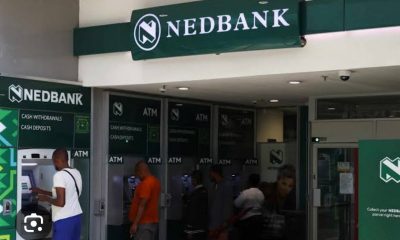News
Netstar Data Breach: South Africa’s Leading Vehicle Tracker Falls Victim to Cyberattack

Netstar Data Breach: South Africa’s Leading Vehicle Tracker Falls Victim to Cyberattack
South Africans woke up this week to the unsettling news that Netstar, one of the country’s most trusted vehicle tracking companies, has fallen victim to a massive cyberattack. The company, owned by JSE-listed Altron, is investigating claims by hacking collective INC Ransom, which says it stole more than 500GB of sensitive data from Netstar’s systems.
For a company whose reputation is built on security and trust, the breach has struck a nervenot just for Netstar’s millions of subscribers, but also for a country already rattled by an alarming rise in high-profile data breaches.
What We Know About the Breach
INC Ransom, a relatively new but fast-rising player in the ransomware underworld, took credit for the attack on its dark web site. The group claims to have siphoned off invoices, source code, and even private customer information. Early signs suggest this wasn’t just a random hit, attackers spent time combing through systems, extracting credentials, and targeting the most valuable files before deploying ransomware.
Netstar’s subscriber base has boomed in recent years, crossing the two-million-user mark with operations spanning over 33,000 global assets. That scale makes the breach potentially one of the most significant cybersecurity incidents South Africa has seen in 2025.
Altron confirmed to MyBroadband that it is investigating but stopped short of sharing details, a move that has fuelled speculation on social media about the scale of exposure.
Why This Attack Matters
South Africans are no strangers to data breachesbut this one hits differently. Netstar isn’t a fashion brand or an online store, it’s a company entrusted with vehicle movement, fleet data, and personal information tied to security systems. The idea of that kind of data being leaked is understandably raising alarm bells.
INC Ransom has typically focused its attacks on multinational firms in North America and Europe. South Africa, with its mix of corporate giants and sometimes under-resourced cybersecurity frameworks, may now be emerging as a new hunting ground.
A Growing Trend: South Africa Under Siege
Netstar is not alone. In just the past eight months:
-
Mediclinic had employee data stolen.
-
Adidas South Africa admitted customer information was exposed.
-
MTN and Cell C both confirmed breaches, with Cell C openly acknowledging it fell prey to ransomware.
-
Even government departments like National Treasury and Planning, Monitoring, and Evaluation were compromised through Microsoft’s SharePoint zero-day vulnerability.
From mining giant Eastplats to property heavyweight Pam Golding, no sector has been spared. For ordinary South Africans, the message is clear: your data is never as safe as you think.
Public Reaction
On X (formerly Twitter), South Africans expressed a mix of frustration and resignation. One user joked, “If even Netstar can’t keep its data safe, what chance do the rest of us have?” Another, more serious, pointed out the irony: “We pay these companies to protect us, but who protects our data?”
Industry insiders argue that South Africa has become a soft target because cybersecurity spending hasn’t kept pace with the sophistication of global hackers. Local firms often treat data security as an afterthought, until it becomes front-page news.
Cybersecurity experts warn that ransomware groups like INC Ransom don’t just encrypt files, they threaten to leak them if companies don’t pay. Whether Netstar chooses to negotiate or fight back could shape how future attacks on South African firms unfold.
For now, Netstar’s customers and South Africa at large, will be watching closely. Because if the country’s leading vehicle tracking firm can be breached, it’s a wake-up call that no one, from corporates to government institutions, is truly safe.
The Netstar hack signals a turning point. Cybercriminals are no longer overlooking South Africa as a peripheral market, they’re targeting it directly. Unless local companies and government step up their investment in cyber resilience, we may see 2025 remembered as the year South Africa’s digital defenses cracked wide open.
{Source: My Broad Band}
Follow Joburg ETC on Facebook, Twitter , TikTok and Instagram
For more News in Johannesburg, visit joburgetc.com

















